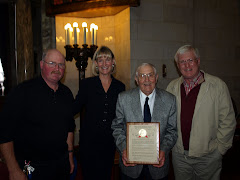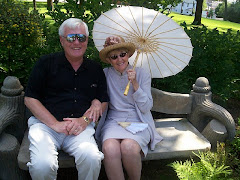In fact, as the course unfolds, students will discover for
themselves that what we value, our leadership philosophy has huge implications
for how present and potential followers will respond to us as leaders. Followers want to know if we really believe
in what we say, or are we just another “fast-talking” fake, phony, fraud who “talks”
but never “walks the talk” when times of testing of their espoused values come.
In other words, values decide what we will defend or abandon under pressure,
and we can count on relentless pressures in our chaotic and complex times –
especially on leaders. Others are
watching. How we defend and promote
consistent sets of values, our philosophy, determine their response to us.
Are we actually willing to put our careers “on the line” for
what we value deep down in the core of our being? This question is at the heart of this course;
the assignments help students to discover their own core values and assess how
their values align or clash with salient workplace challenges to them. For example, in our chaotic and complex times,
how much risk are we willing to take in making leadership decisions? How much do we value risk as a factor in
decision making for ourselves – and for others?
This course challenges students to reflect on what is really
of value to them and how such values can provide a sure foundation for forming
a vital philosophy of leadership for adult education. It provides
students with time-tested, field-tested techniques for ongoing strengthening of
their philosophy of leadership through career development practices like
systematic professional journaling. As
the course evolves, students will come to understand that creating and
nurturing a leadership philosophy for adult education is, in fact, hard, practical,
pragmatic preparation for career success in the “real world.”
Reference
Hofstadter, R. (1966).
Anti-Intellectualism in American
Life. New York: Vintage Books.















No comments:
Post a Comment